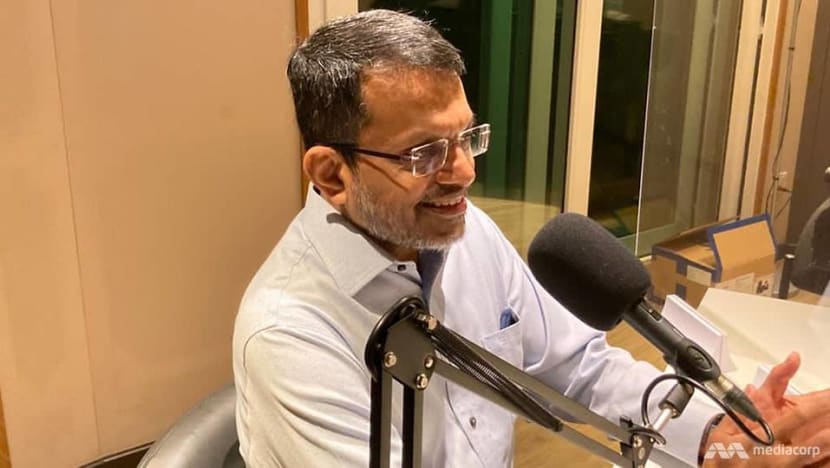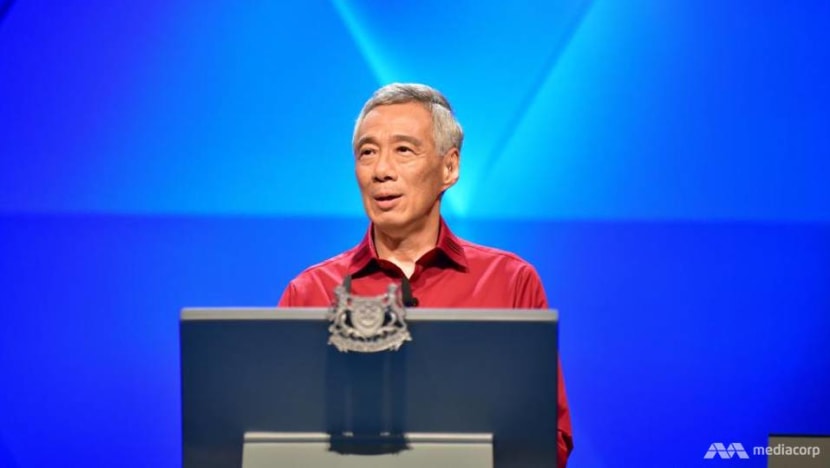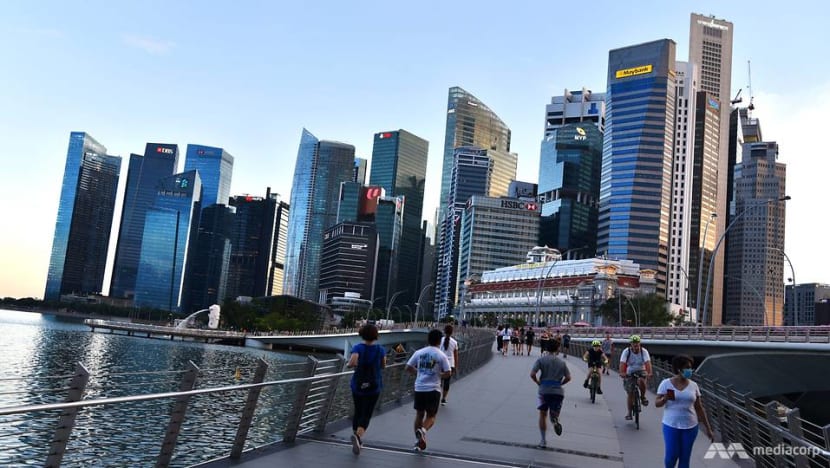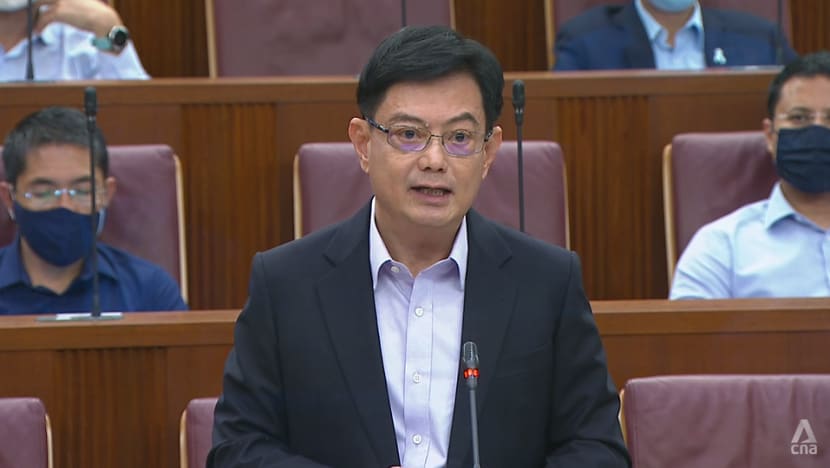Climate change both an existential risk and an opportunity for the financial sector: MAS chief Ravi Menon
Climate change and sustainability will be the “predominant preoccupation” of business and finance. Central bank chief Ravi Menon explains how Singapore can transit into a green economy on the latest episode of CNA’s The Climate Conversations podcast.

Mr Ravi Menon on The Climate Conversations, Mar 31, 2021.
SINGAPORE: Working at the Monetary Authority of Singapore (MAS) since 1987, he has seen tectonic shifts in the financial world, from the rise of digital finance, to artificial intelligence and blockchain technology.
But what drives Ravi Menon and his team at MAS these days are the risks and opportunities that addressing climate change will bring to the Singapore economy.
“It was about two to three years ago … I became increasingly convinced that if indeed climate change is the existential risk of our times, then it must also be the existential risk for the financial sector,” said Mr Menon on CNA’s The Climate Conversations podcast.
As a global financial centre, Singapore had to think seriously about not just what the risk was, but in mitigating it and in the process make a clear shift towards a lower carbon economy. All of this, he said, “was going to change the structure of economies and societies”.
READ: Commentary: Here's how green bonds will take Singapore's reputation as a finance hub to the next level
To him, three key factors will drive this change: How financial institutions work around the risks, how they tap on opportunities and how they can become a force for good.
He gave the example of global financial institutions based here, banks and asset management firms who have a “strong consciousness” about climate risk – which is why Environmental, Social, and Corporate Governance (ESG) reporting has been around for some time.
But COVID-19 has accelerated this push.
“The shock of the pandemic kind of woke them up to the realities of our interdependence with nature and the planet and that sparked a strong commitment to environmental sustainability,’’ he said.
READ: Commentary: A decade of climate change has had devastating impact. But there’s hope yet
Singapore declared climate change to be one of the “gravest challenges facing mankind” during Prime Minister Lee Hsien Loong’s National Day Rally speech in 2019, which saw PM Lee commit S$100 billion to protect the country from rising sea levels.

The Singapore Green Plan 2030 was also unveiled in February outlining sustainability targets for next 10 years. The Government also announced it would issue green bonds on selected infrastructure projects, with S$19 billion worth already identified.
WHERE THERE ARE RISKS, THERE ARE OPPORTUNITIES
Responding to a question from CNA Digital’s Chief Editor, Jaime Ho on the pressures that banks face in easing off their investments in, and loans to industries still heavily reliant on fossil fuels, Mr Menon acknowledged that this is not something that can be done immediately.
“It's easy to issue a directive and say no more investments in fossil fuels. But that doesn't make sense because the world needs fossil fuels.’’
He pointed to Asia, where there are vast populations who still need electricity and “the cheapest way to get electricity is to burn coal”. So the challenge for banks and financial institutions is to map out a clear transition plan.
“So we tell the banks, you must have a transition strategy, that will make sure your customers and clients go on to cleaner and cleaner fuels … and you must create incentives to do that.’’
READ: Commentary: The changing geopolitics of clean energy will impact Singapore’s Green Plan
The “bread and butter” issue for financial institutions is the calculation of profit versus risks but the reality is that in the next 10 to 20 years, these risks are going to be too high, and if companies don’t address them, they are passed on to the banks investing in them.
So it is an “active conversation” MAS has had with the financial institutions. The key is to measure what these companies have been doing to go green. Mr Menon added that this then leads to another key issue: Enhancing transparency and reporting standards when it comes to companies outlining their climate risks as well as actions taken to lower carbon footprints.
The central bank chief noted this was still a work in progress and would take some time; as a regulator, MAS will play a big role in holding companies accountable and if they fall short, punished, he said.
“So you need to build up the capability, then you need to put pressure through regulation and the two must work in tandem, then we will get there,’’ he said.
READ: Shades of green: Banks take bigger steps toward greener finance amid climate change push
JOBS AND NEW SECTORS
Asked about the jobs that Singaporeans can look forward to as the country moves on its journey towards a green economy and hub for green finance, Mr Menon was upbeat. For a start, he noted that more financial institutions have been hiring entire ESG (environmental, social and corporate governance) teams – numbering anywhere from 10 to 30 people.

As more firms do this, Singapore can become a key point from which ESG developments in the region and beyond are monitored, he said. But this is just one small part of an entire “eco-system” he sees springing up, creating substantial job opportunities.
He spoke about the growing demand for people skilled in climate risk management, monitoring and reporting, and workers who are able to verify information and sustainability outcomes.
MAS itself is not sitting idle either. Asked about MAS’ own hiring plans as it scales up its climate capabilities, Mr Menon revealed that the authority has just begun a search for a Chief Sustainability Officer – something he says should ideally have been done “six to 12 months ago”. Mr Menon added that for himself, his own journey in MAS has seen him learn new skills.
“When I started this job, I knew nothing about technology and sustainability was an alien concept. Today, I'm forced to know how blockchains work; I am forced to know what the various lingua in sustainability literature is. And that’s what is happening for the whole organisation," he said.
READ: Commentary: Forces of climate action are reshaping finance in Singapore and around the world
READ: Commentary: Singapore's oil and gas sector should embrace transition to a green future with confidence
THE ROAD AHEAD ON CARBON TAX
Mr Menon was asked about his view on the role the carbon tax will play in a green economy.
Singapore's carbon tax rate has been set at S$5 per tonne of greenhouse gas emissions from 2019 to 2023. The Government had earlier said this would be increased to between S$10 and S$15 per tonne by 2030.
During his budget speech in February this year, Deputy Prime Minister Heng Swee Keat said the Government will review the “trajectory and level” of the tax and this will be announced next year after it consults with industry and experts.
Until 2023, the carbon tax rate will be maintained at S$5 per tonne of greenhouse gas emissions as previously announced, Mr Heng said in Parliament.

Mr Menon believes the carbon tax can be a “powerful tool”.
“I would prefer earlier and higher. But there’s a lot of adjustment considerations we need to take into account,’’ he said.
He noted, however, that this would have to be done progressively, not in “jumps and starts”. This with the goal in mind of altering behaviours towards ultimately lowering carbon emissions.
Listen to the full interview with Mr Ravi Menon on The Climate Conversations:














